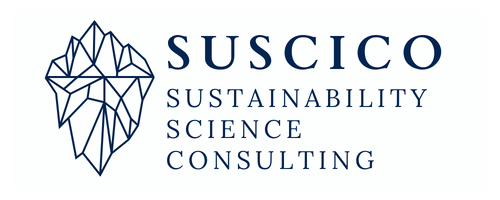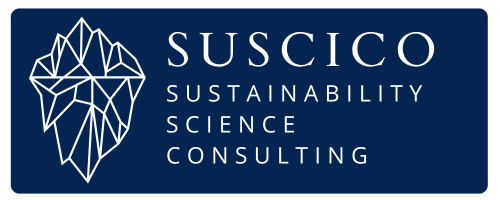Disclosing Charity in ESG Reports and Navigating Tax Relief Donation Malaysia
- 18/08/2025
- Posted by: Ildar Usmanov
- Categories: ESG Reports, Inside ESG Reporting

This article is part of our Inside ESG Reporting series, where SuSciCo shares insights on making ESG disclosures accurate, credible, and aligned with global and Malaysian frameworks
When companies donate products—such as toothpaste, food packs, or school supplies—they face an important question: How Should Companies Disclose Charity in ESG Reports and Tax Relief Donation Malaysia?
This issue is not just about good intentions. It is also about compliance. Financial reporting, ESG disclosure, and tax relief donation Malaysia rules all take different approaches. To stay credible, companies need a tri-track valuation approach:
- IFRS / MFRS (financial statements)
- GRI Standards & IFRS S1/S2 (sustainability reports)
- Malaysian Income Tax Act & LHDN (tax reporting)
1. Financial Reporting (IFRS / MFRS)
Framework: IAS 2 Inventories / MFRS 102
- Valuation: Carrying amount = purchase or production cost + inbound transport.
- Distribution costs: Outbound delivery is not part of cost. It is expensed separately.
- Expense recognition: When goods are donated, the carrying amount is derecognized and recorded as an expense.
Why it matters: This approach ensures fair and consistent reporting under IFRS.
2. ESG & Sustainability Reporting (GRI Standards, IFRS S1/S2)
Frameworks: GRI 201-1, GRI 413-1, IFRS S1
- Valuation: Fair Market Value (FMV) such as retail or wholesale price on the donation date.
- Transparency: Companies should state how FMV was determined, citing catalogues or retail prices.
- Why FMV: It shows the real benefit to the community. It also makes impact reporting comparable.
Best practice: Keep both cost (for financials) and FMV (for ESG reports). This helps with assurance and stakeholder trust.
3. Tax Deduction and Tax Relief Donation Malaysia Rules
Frameworks: Income Tax Act 1967, LHDN Public Rulings
- Section 44(6): Only cash donations to approved institutions qualify for tax relief donation Malaysia. The cap is 10% of aggregate income. In-kind donations do not qualify here.
- Section 44(11C): In-kind donations are deductible at cost for national interest projects approved by the Ministry of Finance.
- Section 34(6)(h): CSR projects approved by MoF may also allow deductions at cost basis.
- FMV vs cost: For tax relief donation Malaysia, only cost counts. FMV is not accepted.
Best practice: Keep MoF approval letters, invoices, and cost evidence. Use FMV in ESG reports but cost for tax relief donation Malaysia claims.
Best Practice Valuation
| Framework | Valuation Basis | Documentation |
|---|---|---|
| IFRS / MFRS | Cost (carrying amount) – production + inbound freight | BOM sheets, supplier invoices, transport receipts |
| GRI / IFRS S1 | Fair Market Value (FMV) – retail/wholesale at donation date | Price catalogues, listings, FMV method |
| LHDN / ITA 1967 | Cash under s44(6); in-kind at cost under s44(11C)/s34(6)(h) | Approval letters, invoices, cost records |
Why This Matters
Misalignment between financial, ESG, and tax relief donation Malaysia rules creates risk. Companies face:
- Misstatements in accounts
- Greenwashing accusations
- Tax penalties
Execution requires aligning finance, sustainability, and tax functions. This is where many companies struggle.
Final Takeaway
Charity must be disclosed correctly:
- Financial statements → Cost
- Sustainability reports → FMV
- Tax returns → Cash or cost, under tax relief donation Malaysia rules
This approach ensures compliance with IFRS, GRI, and Malaysian tax law while building ESG credibility.
How SuSciCo Can Help
At SuSciCo (Sustainability, Science & Consulting), we:
- Design valuation policies that align with IFRS, ESG, and tax relief donation Malaysia requirements.
- Prepare audit-ready disclosures that satisfy both regulators and assurance providers.
- Support companies in building credible ESG strategies.
👉 If your company donates goods or runs CSR programmes, let us help you transform compliance into credibility.
📩 Contact SuSciCo today for expert ESG and reporting support.
⚖️ Disclaimer: This article is for informational purposes only and does not constitute accounting or tax advice. Please consult your auditors or tax advisors for specific applications.

References
Accounting & Financial Reporting (IFRS / MFRS)
- International Accounting Standards Board. (2024). IAS 2: Inventories. IFRS Foundation. RB2024-A – Issued IFRS Standards
- IFRS Foundation. (2024). Conceptual framework for financial reporting. IFRS Foundation. https://www.ifrs.org/issued-standards/list-of-standards/conceptual-framework/
Tax Deduction (Malaysia)
- Inland Revenue Board of Malaysia. (2024). Public ruling no. 4/2024: Tax treatment on donations. Lembaga Hasil Dalam Negeri Malaysia. https://www.hasil.gov.my/media/d2wh4ykj/pr-no-4-2024.pdf
- Parliament of Malaysia. (1967). Income Tax Act 1967 (Act 53). https://www.hasil.gov.my/media/znonhmuj/20231101-income-tax-act-1967-act-53.pdf
SuSciCo helps in implementing Sustainability Practices
At SuSciCo, we help companies implement a Customer-Centric Sustainability approach by integrating ESG principles into their strategies. Our services include GHG management, sustainability reporting (GRI, IFRS, Bursa Malaysia), supply chain optimization, and ISO 14001 EMS development. We offer PCF and LCA assessments, sustainable procurement strategies, and waste management solutions to align products and operations with customer expectations. Through tailored ESG training and stakeholder engagement, we empower businesses to reduce environmental impacts, foster innovation, and build trust for sustainable growth.



